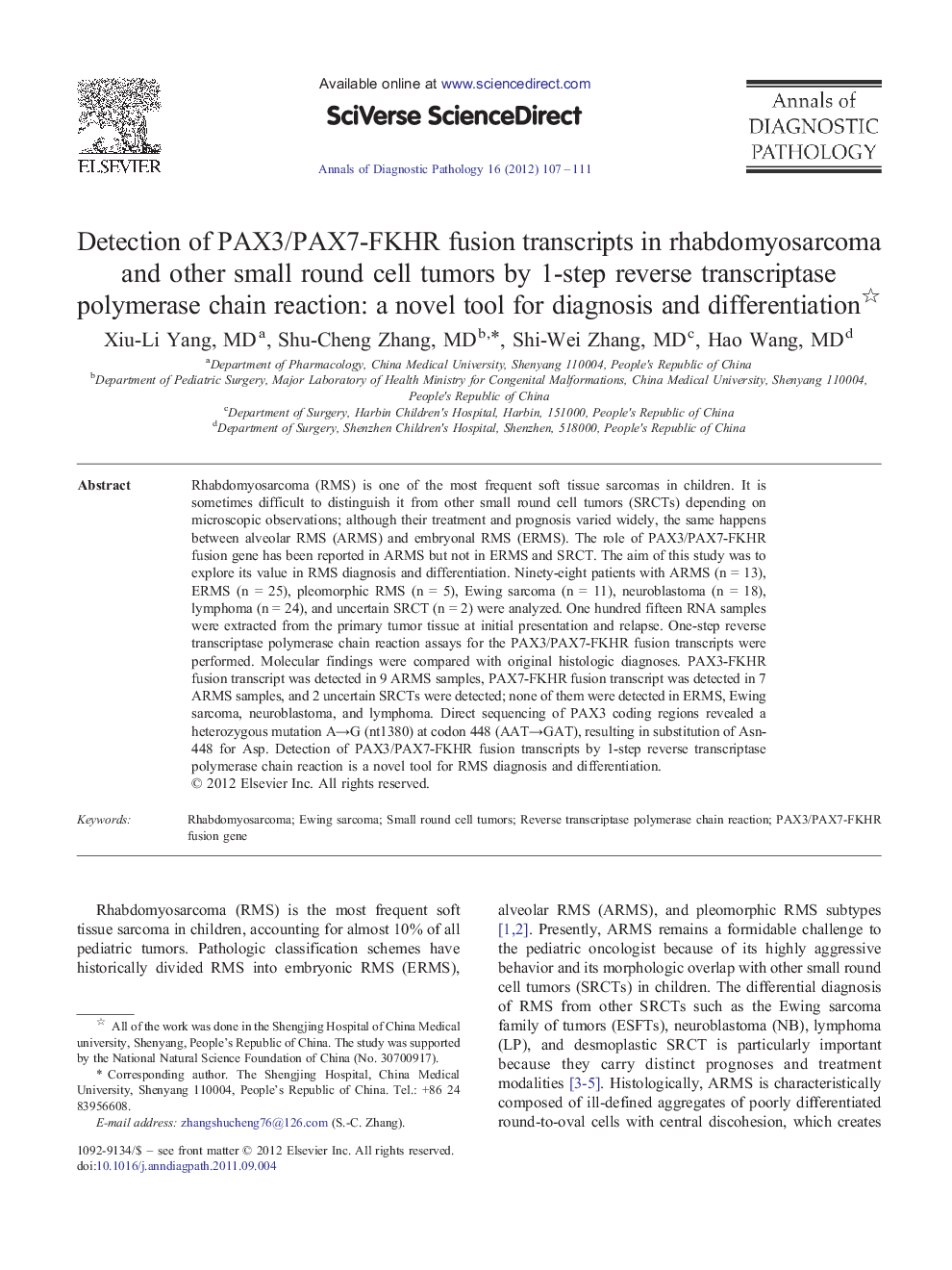| Article ID | Journal | Published Year | Pages | File Type |
|---|---|---|---|---|
| 4130017 | Annals of Diagnostic Pathology | 2012 | 5 Pages |
Rhabdomyosarcoma (RMS) is one of the most frequent soft tissue sarcomas in children. It is sometimes difficult to distinguish it from other small round cell tumors (SRCTs) depending on microscopic observations; although their treatment and prognosis varied widely, the same happens between alveolar RMS (ARMS) and embryonal RMS (ERMS). The role of PAX3/PAX7-FKHR fusion gene has been reported in ARMS but not in ERMS and SRCT. The aim of this study was to explore its value in RMS diagnosis and differentiation. Ninety-eight patients with ARMS (n = 13), ERMS (n = 25), pleomorphic RMS (n = 5), Ewing sarcoma (n = 11), neuroblastoma (n = 18), lymphoma (n = 24), and uncertain SRCT (n = 2) were analyzed. One hundred fifteen RNA samples were extracted from the primary tumor tissue at initial presentation and relapse. One-step reverse transcriptase polymerase chain reaction assays for the PAX3/PAX7-FKHR fusion transcripts were performed. Molecular findings were compared with original histologic diagnoses. PAX3-FKHR fusion transcript was detected in 9 ARMS samples, PAX7-FKHR fusion transcript was detected in 7 ARMS samples, and 2 uncertain SRCTs were detected; none of them were detected in ERMS, Ewing sarcoma, neuroblastoma, and lymphoma. Direct sequencing of PAX3 coding regions revealed a heterozygous mutation A→G (nt1380) at codon 448 (AAT→GAT), resulting in substitution of Asn-448 for Asp. Detection of PAX3/PAX7-FKHR fusion transcripts by 1-step reverse transcriptase polymerase chain reaction is a novel tool for RMS diagnosis and differentiation.
